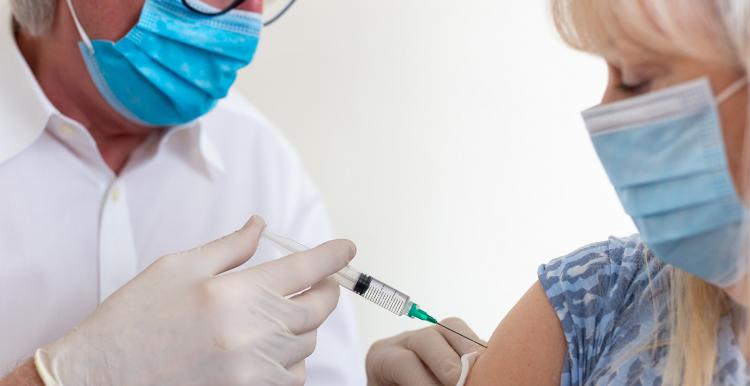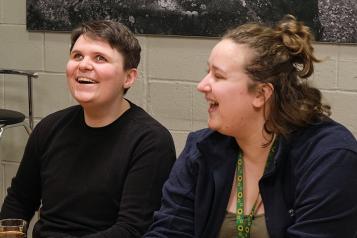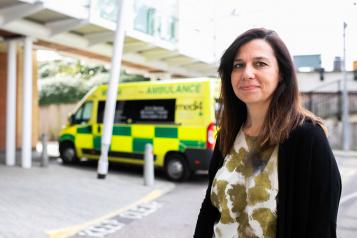COVID-19 booster vaccine: your questions answered

This article was last updated on 27 October 2023. For the latest information on COVID-19 visit the North Central London NHS website.
Who is being offered the Covid booster vaccine?
To maintain high levels of protection throughout the winter months, the Government is offering a seasonal COVID-19 vaccine. You or your child may be offered a seasonal COVID-19 vaccine if you are:
- aged 65 years old or over (you need to be 65 years old by 31 March 2024)
- pregnant, at any stage of pregnancy
- aged 6 months to 64 years old and are at increased risk
- living in a care home for older adults
- a frontline health or social care worker
- aged 16 to 64 years old and are a carer
- aged 12 to 64 years old and live with someone with a weakened immune system
Your COVID-19 booster can be given with the flu jab.
If I’m eligible, how do I get my booster jab?
You can get a seasonal COVID-19 vaccine by:
- booking online
- booking on the NHS App
- going to a walk-in COVID-19 vaccination clinic: find your nearest pharmacy offering walk-in vaccination, and find walk-in vaccination clinics in local GP surgeries, hospitals and community centres.
What if I'm not sure if I'm eligible?
If you are not sure if you are eligible for the vaccine, speak to your GP, pharmacist or specialist. You do not need an NHS number and you do not need to be registered with a GP. You will not be asked about your immigration status.
Which COVID-19 vaccine will I get?
Most people will be offered a booster dose of the Pfizer/BioNTech vaccine or Moderna vaccine.
This means your booster dose may be different from the vaccines you had for your first and second doses.
Some people may be offered a booster dose of the Oxford/AstraZeneca vaccine if they can't have the Pfizer/BioNTech or Moderna vaccine.
Are there any side effects?
Like all medicines, vaccines can cause side effects. Most of these are mild and short-term, and only some get them. You should not have the vaccine if you've ever had a severe allergic reaction to:
- Any of the ingredients in the vaccine
- A previous dose of the same COVID-19 vaccine
Severe allergic reactions are rare. If you do react to the vaccine, it usually happens in minutes. Staff giving the vaccine have training to deal with allergic reactions and treat them immediately.
I'm pregnant, can I still get the vaccine?
No specific safety concerns concerning pregnancy have been identified with any brand of COVID-19 vaccines.
Pregnant women in the UK should be offered the Pfizer-BioNTech or Moderna vaccines.
I've had COVID-19. Do I still need to get a booster?
An effective vaccine is the best way to protect people from COVID-19, reduce hospitalisations and save lives. Vaccines are the only way to eradicate the disease.
People who've already had COVID-19 should still get vaccinated. It's still just as important for those who've already had COVID-19 as it is for those who haven’t.
What does a vaccine do?
Vaccines teach your immune system how to create antibodies that protect you from diseases. It's much safer for your immune system to learn this through vaccination than by catching and fighting the diseases.
Are vaccines safe?
Vaccines are now safer than ever before. Any vaccine has to go through a rigorous testing and development process, and comply with strict standards for safety, quality and effectiveness.


